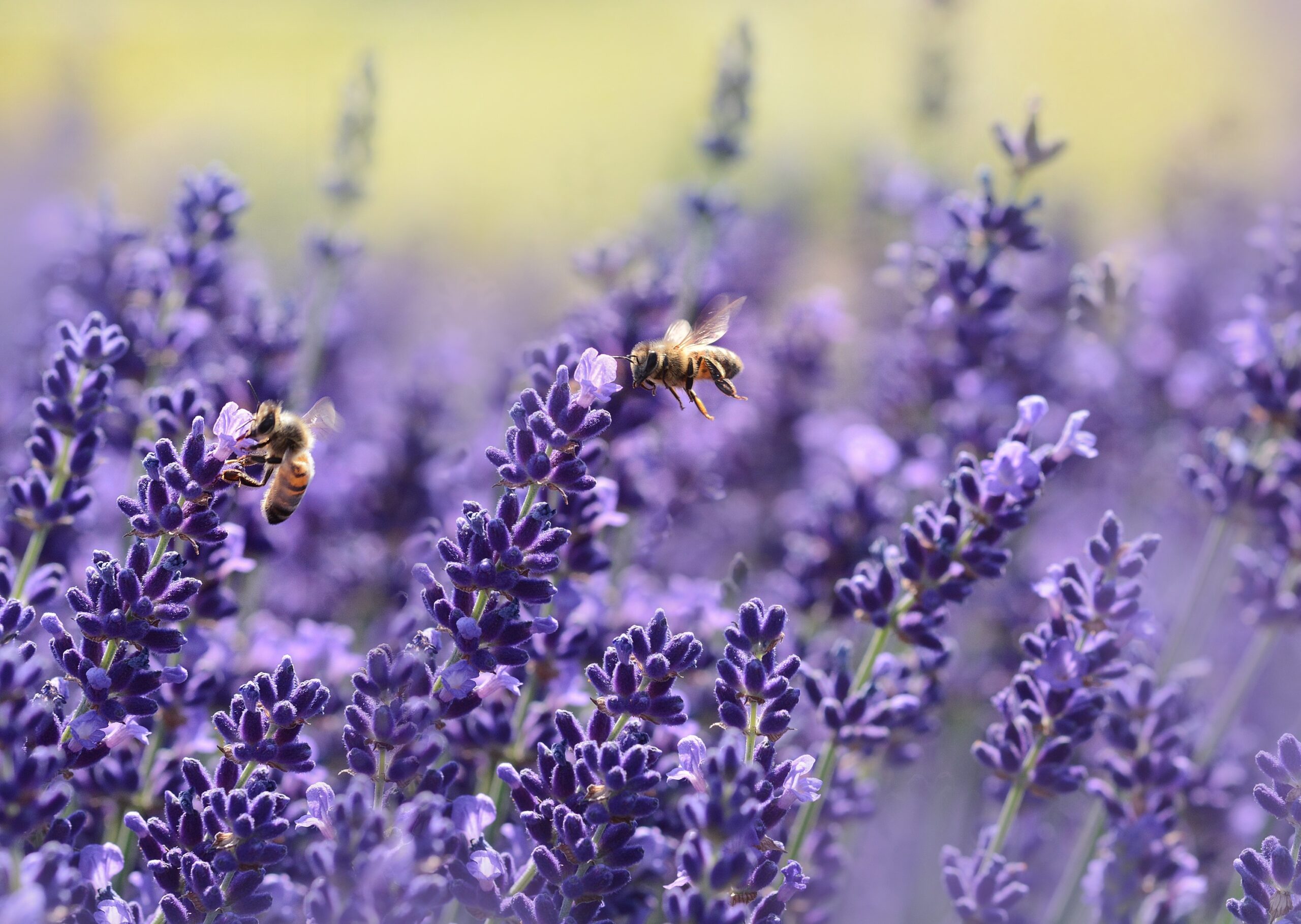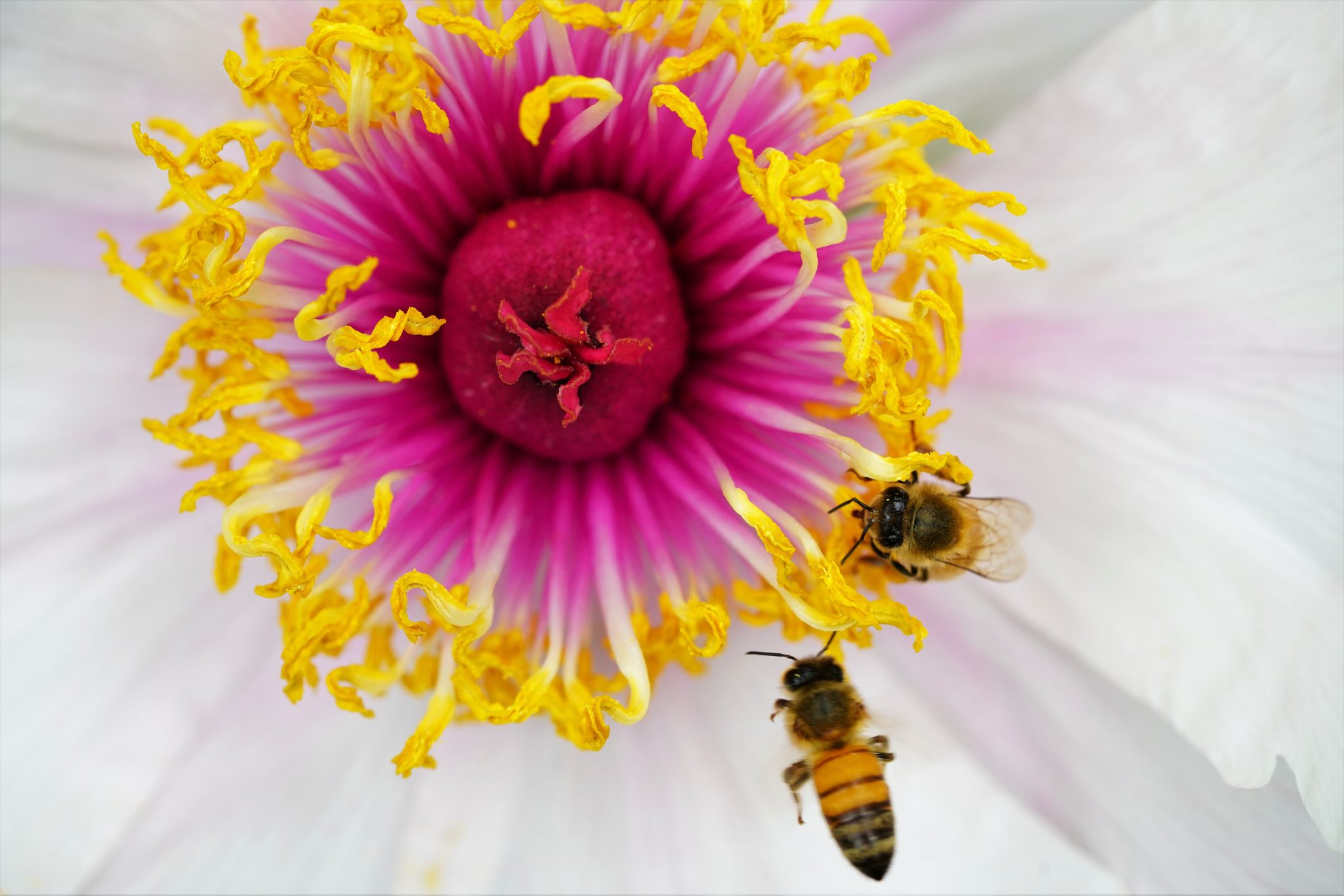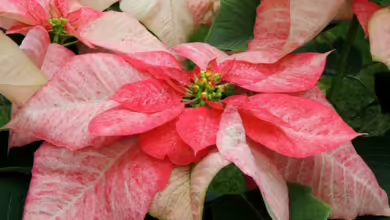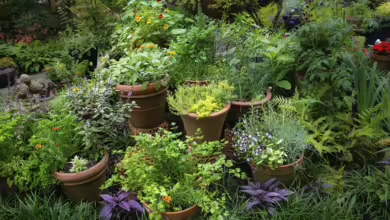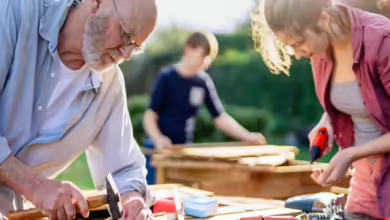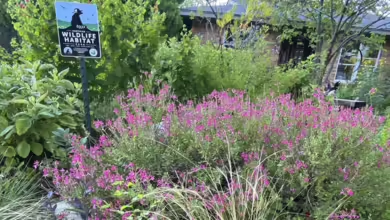What’s All the Buzz About Bees?
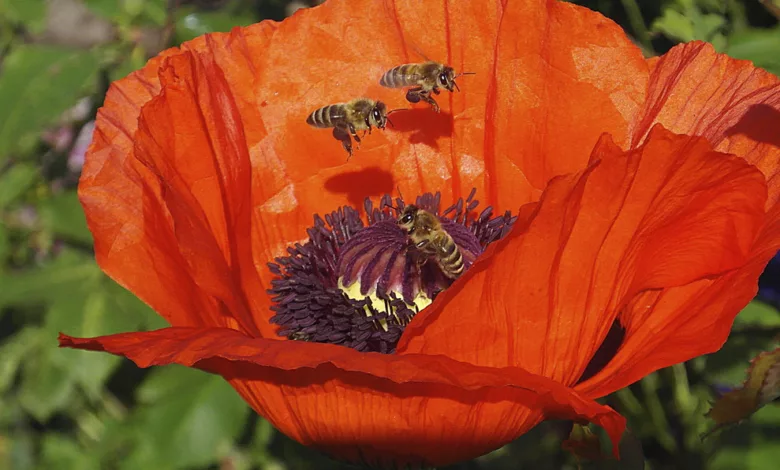
These Fascinating Creatures Are Un-‘Bee’-lieveable
Have you ever had the opportunity to observe a honeybee’s busy work as it meanders from flower to flower on a cloudless, summer’s day?
Honeybees are known for their honey and beeswax production, as well as the significant role they play in the pollination of plants and flowers. Honeybees can also be considered super-organisms due to their complex social systems and dynamic, tight-knit interactions with one another and their environments. Did you know that honeybees are the only insect that produces food consumed by humans?
You might ‹bee› surprised to learn more amazing honeybee facts.
- A honeybee can fly at up to 15 miles per hour.
- A honeybee visits 50 to 100 flowers during a collection trip.
- The honeybee’s wings stroke 11,400 times per minute, making their distinctive buzz.
- The average honeybee will make only one-twelfth of a teaspoon of honey in its lifetime.
- It takes the nectar from two million flowers to make one pound of honey.
- Queen bees have only one responsibility: to lay eggs.
Honeybees are Social Creatures
Unlike most insects, honeybees are social creatures. They live in well-maintained and organized colonies, relying on themselves and their brethren to keep the hive safe and healthy.
The complexity of the hive—from communication to labor division to behaviors like environmental regulation and defense—makes these highly evolved creatures downright fascinating.
Bees as Pollinators: Experiencing a More Bountiful Garden
Any gardener recognizes the value of pollinating insects, which perform an essential service in the production of seed and fruit.
The survival of plants depends on pollination, and the honeybee accounts for 80 percent of all insect-driven pollination. Without the honeybee’s services, more than a third of the fruits and vegetables that humans consume would be lost.
Bees Are in Trouble
The bee population is in peril — and, without bees, we wouldn’t have any food. If plants and tree flowers aren’t pollinated, fruits and vegetables don’t form.
The overuse of pesticides, lawn treatments, herbicides, and other environmental toxins have wreaked havoc on bees and other inhabitants of nature. Colony collapse disorder has brought the honeybee population down by more than half over the last 25 years.
When gardeners wonder why they now see fewer honeybees in their gardens, it’s because of the dramatic decrease in our wild honeybee population.
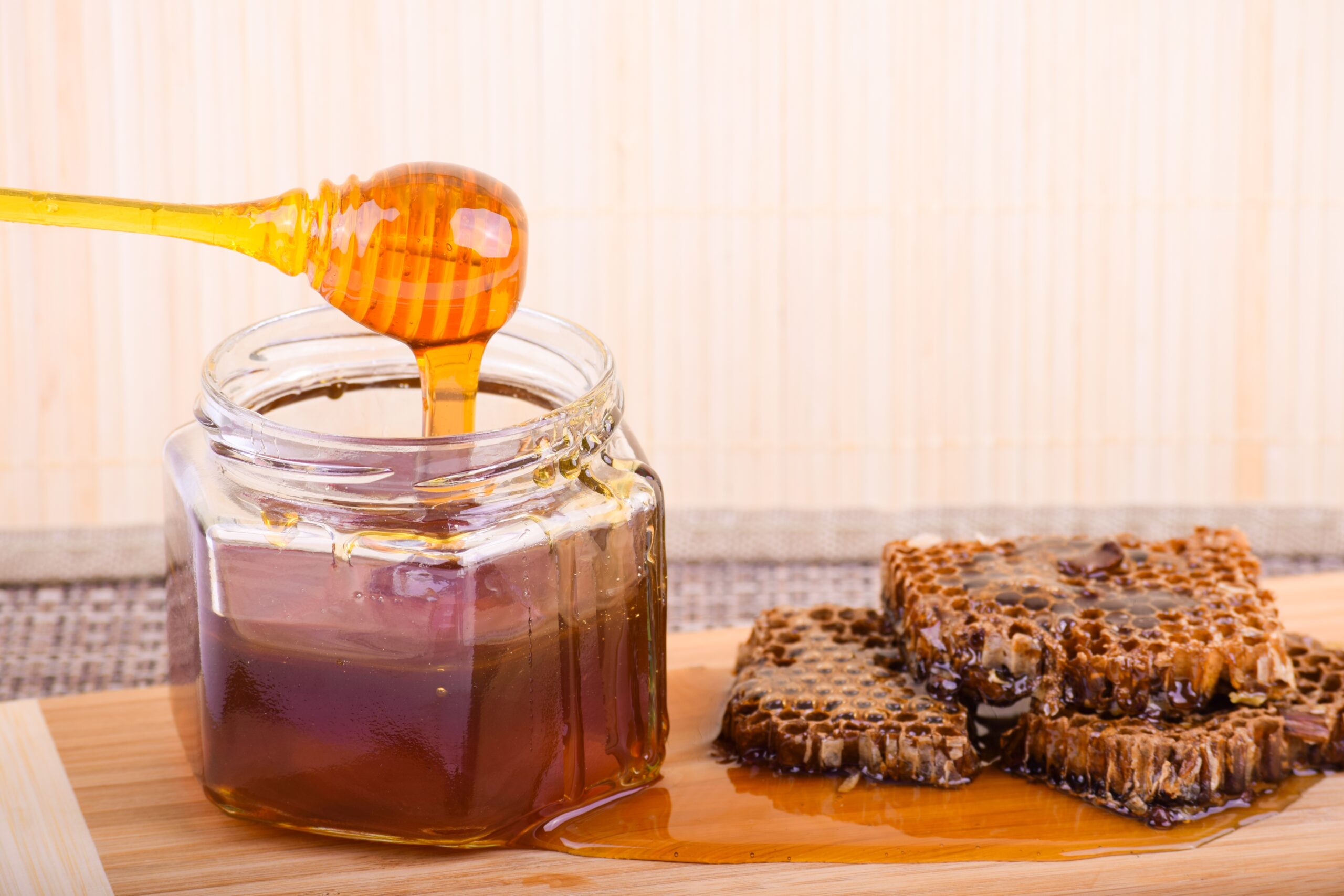
The Amazing Power of Honey as Medicine
The use of honey as medicine is nothing new.
Honey was an ingredient in Egyptian medicinal compounds and cures 5,000 years ago. It has been discovered in other ancient practices, from traditional Chinese medicine and Indian Ayurveda to Mayan shamanism.
Any health food store proprietor can tell you the benefits of the bees’ products. Honey, pollen, royal jelly, and propolis have been a part of healthful remedies for centuries.
Apitherapy is the use of bee products for treating health disorders. Even the bees’ venom plays an important role — in bee-sting therapy. Administering venom to patients who have arthritis and other inflammatory/medical conditions has become a common practice.
Here are some health benefits raw honey has to offer:
- A good source of antioxidants
- Antibacterial and antifungal properties
- Wound-healing attributes
- Phytonutrient nt powerhouse
- Helps some digestive issues
- Soothes a sore throat
- A powerful allergy fighter

Helping the Honeybee
Saving honeybees and other bee species starts with collaborating with wild bee habitat restoration efforts, reducing the use of harmful pesticides, and spreading knowledge about the importance of bees to ecosystems and our daily lives.
Whether you enjoy the benefits of bees in your garden, savor a spoonful honey in your tea, or get a buzz out of honeybees — there’s always a reason to help bees.


